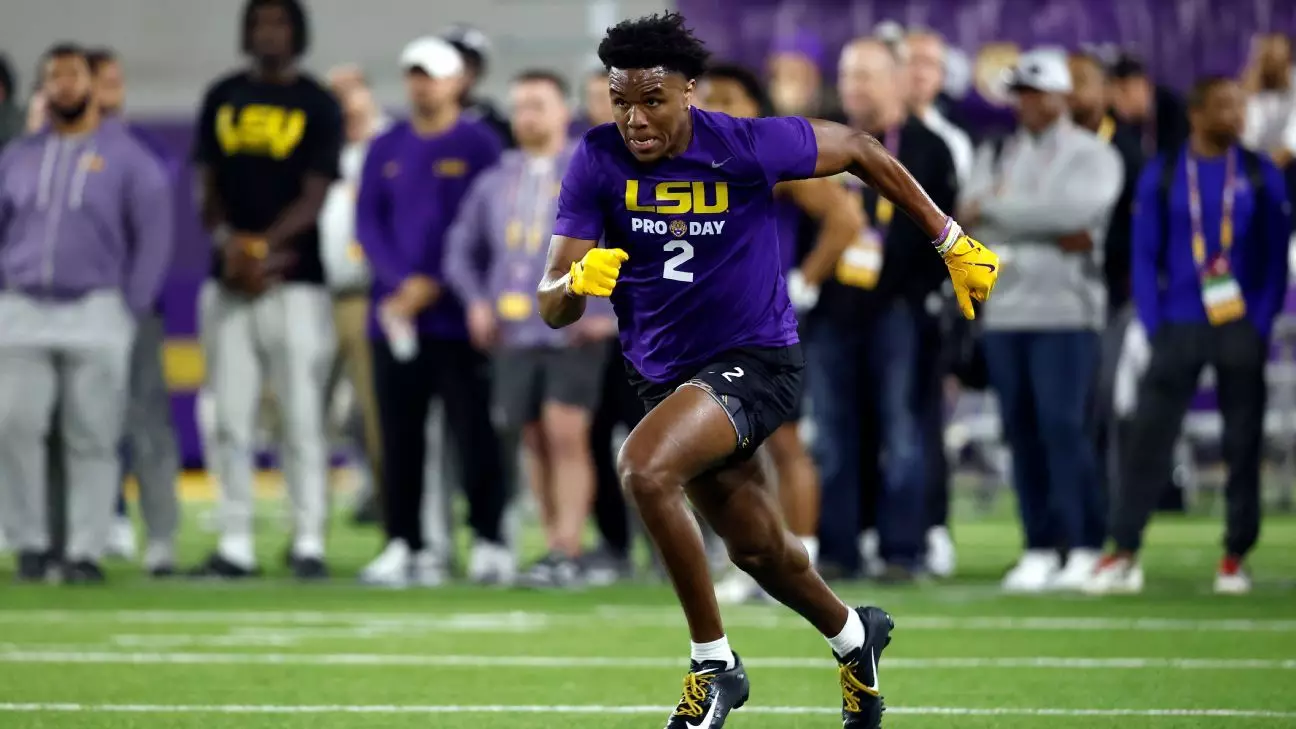The news of former LSU football star Kyren Lacy’s untimely death sends ripples through the sports community and beyond. Found in his car in Houston, Lacy’s passing represents not just the loss of a promising athlete but highlights a troubling discourse around mental health, particularly among young athletes facing pressures that often go unseen. The layers of this tragedy are complex, revealing a troubling narrative buried beneath statistics and performance metrics.
Lacy, at just 24 years, had so much ahead of him. The potential of an NFL draft pick loomed large after an impressive college career, yet this potential was overshadowed by a series of unfortunate and troubling events culminating in his tragic end. What could lead a young individual, burdened with the weight of expectations and personal turmoil, to make such a heartbreaking decision? It’s a question that’s now drawing attention, needing urgent dialogues around mental health assessments and support systems for athletes.
The Strain of Public Scrutiny
In recent years, the pressures on collegiate athletes have amplified due to public scrutiny and media attention. Lacy was caught in a maelstrom of legal challenges stemming from a car accident that tragically resulted in another man’s death. This incident painted a tarnished picture of his career and affected his standing in the eyes of scouts and fans alike. While the legal process was ongoing, the weight of being branded as “the suspect” must have felt insurmountable, creating an environment ripe for despair.
Parents and guardians must be made acutely aware of the stresses their children may face. Lacy’s father poignantly remarked about the importance of raising awareness around mental health, indicating a devastating personal reflection on loss. The narrative doesn’t just end in tragedy; it transforms into a clarion call for emotional vigilance within families. Young athletes often feel pressured to perform and to project an image of success, even when the reality is fraught with challenges.
Coping Mechanisms on the Cultural Front
The sports culture greatly affects how young athletes perceive and engage with mental health. These athletes often feel the need to maintain a facade of invincibility, which leads to unaddressed psychological stress. Lacy’s case underscores the dire need for a cultural shift, where vulnerability is seen not as a weakness but a strength. Mental health should be emphasized in athlete training programs, in addition to physical conditioning. Specialized programs are essential for equipping athletes with coping mechanisms and resources to navigate their emotional and mental well-being.
Moreover, the environment surrounding college football must undergo revolution; coaches and staff should be trained not just in play strategies but also in mental health advocacy. Lacy’s unfortunate demise brings to light the urgent need for systemic change in how athletic programs approach mental wellness. Football recruitment must prioritize emotional resilience alongside athletic prowess.
The Reality of Mental Health in Sports
Lacy’s tragic end exemplifies an epidemic that has been sweeping not just through sports but across various sectors—mental health issues are silently claiming too many lives. It’s a call to action that cannot be ignored. The statistics surrounding athletes and mental health should compel us to reconsider how we support these individuals in their careers. Teams need to develop robust mental health programs, offering athletes support without stigma. Coaching and player development should include a mental wellness checklist that offers transparency when it comes to mental struggles.
Additionally, the media plays an integral role in shaping narratives. The focus should shift from solely sensationalized stories about athletes in trouble to broader discussions regarding athlete mental health. We owe it to the likes of Kyren Lacy to ensure that their voices are not just about their sports accomplishments, but also about the struggles they faced, aiming to cultivate a more supportive and understanding community.
Kyren Lacy’s story should not serve as a mere anecdote of tragedy, but rather as a catalyst for conversation—a reminder that behind every athlete, there lies a human being, often grappling with challenges that remain hidden from view. Let’s transform our sorrow into awareness and reshape the narrative around mental health in sports for future generations.

